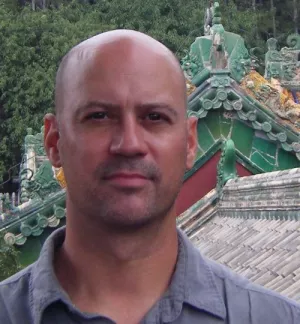
Note
SWJ interview with Nathaniel L. Moir, Ph.D., an Ernest May Postdoctoral Fellow in History and Policy at the Belfer Center for Science and International Affairs, Harvard Kennedy School. Dr. Moir is completing a book manuscript on Bernard Fall for publication.
To what extent did his days in the French resistance provide a formative experience that enabled him to understand the forthcoming change in the character of war that the post WW2 world witnessed?
There are two components to this answer.
The first concerns Fall's experience in the Maquis and second, his experience as a research analyst at the Nuremberg Trials between 1946 and 1948. As a member of the French Resistance, specifically, the Maquis in Haute Savoie, Fall had no real options but to join. Had he not joined, he almost certainly would have been conscripted for labor in Germany since a Vichy-Nazi decree called "Service for Obligatory Labor," issued in 1942, expanded to include Fall's 1926 birth year-group by late 1942.[i] Additionally, Fall was orphaned at the age of 16. He was an Austrian born Jew and after his family emigrated to France of the Anschluss of Austria, his mother was deported to Auschwitz after a raid on their home in southern France in 1942. In late 1943, Fall's father, Leo Fall, was murdered by the Gestapo because Leo was a suspected member of the Resistance. The core lessons Fall learned from this, and from his time in the Maquis centered on intense awareness of political and social distinctions among civil societies in times of war. Before his parents died, they had lived in Cannes where his family was denounced by a French Jewish Council because, as Austrian emigres, they were "Foreign Jews". This council betrayed their location to Vichy authorities who then conducted a raid on their home which led to Fall's mother’s deportation to Drancy and then to Auschwitz. Fall's sensitivity to political and social difference infused his analysis of societies at war in Southeast Asia during the First and Second Indochina Wars and this really made him almost an ethnographer of war. In the Maquis, Fall's awareness of the problem of collaboration only grew in importance and the issue of targeting collaborators was deadly serious during World War II before the Allied Invasion began in June 1944. Partisan warfare was violent but required accurate local intelligence, especially when targeting collaborators — killing the wrong individuals could turn an entire village against a group of Maquis so this kind of fine-grained intelligence that increased the effectiveness of the Maquis' effort really mattered in Fall's analysis of changes of warfare after World War II. He knew very well how, in Vietnam for example, that killing innocent villagers in Vietnam created grievances among surviving family members, and incited others to join or support the National Liberation Front. This is one of many key takeaways Fall's experience in World War II provides....
Manea, Octavian and Nathaniel L. Moir. "Rethinking Bernard Fall's Legacy. The Persistent Relevance of Revolutionary Warfare (Part I)." Small Wars Journal, (December 7, 2019) .
The full text of this publication is available via Small Wars Journal.




